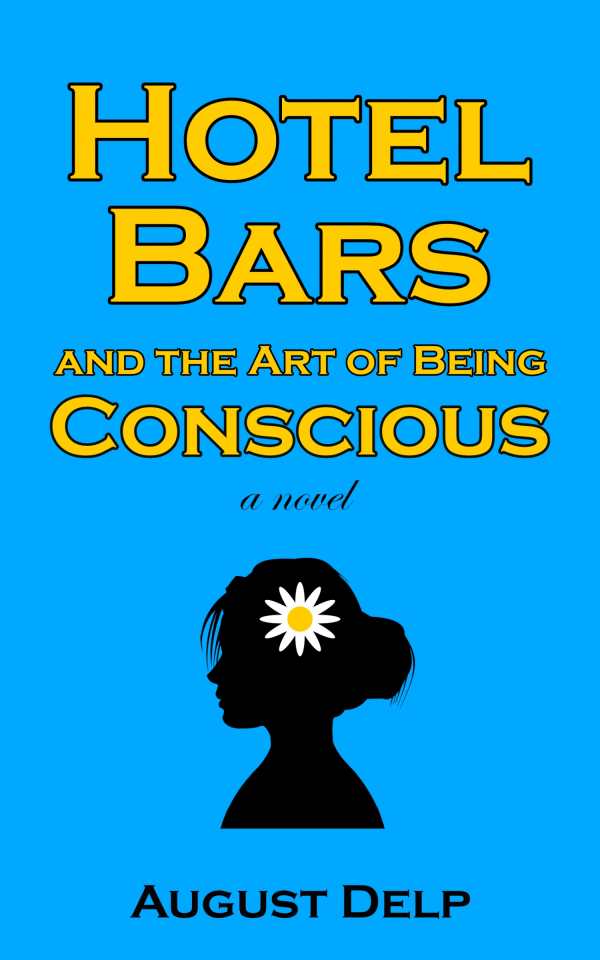Hotel Bars and the Art of Being Conscious
In the philosophical novel Hotel Bars and the Art of Being Conscious, a student of life doubles as a bartender, hoping to learn what being human is all about.
Copious drinks and mind control play into August Delp’s cerebral novel Hotel Bars and the Art of Being Conscious, which endeavors to understand the meaning of life.
Daisy is a financially independent investor who isn’t sure what to do with herself after her son leaves home for school. In her past, she also experienced some aimlessness, and her haphazard explorations of love, work, and parenting left her without many answers. She thirsts for alcohol and for meaning, though, so tending bar and mixing with patrons from around the world seems like a good idea.
But Daisy is less interested in serving drinks than she in solving the ultimate enigma, and she takes to interviewing everyone whom she meets. No one has all the answers, even the Buddhist monks who stop by her bar. Cynical, brassy Daisy also shares her own philosophical musings with anyone who will listen. While others indulge Daisy’s expositions, her continuous exchanges impede the novel’s action.
Over time, Daisy connects with the random group of those who meet in her bar, including an advertising executive, a fishing guide, and a brilliant neuroscientist who made unsettling breakthroughs in mind control. The neuroscientist, Bianca, is also Daisy’s former college roommate, and the narrative shifts to tell her story, too, covering the early days of her graduate research, when she began to learn about manipulating human behavior.
While the novel includes such extensive background on Bianca’s theories and experiments that mind control comes to feel plausible, the grey morality of her actions is troubling. The question of whether a decent person’s scientific pursuit of mind control is worse than other, weaker forms of the practice, such as religion, advertising, and culture, arises. Further, Bianca’s lengthy scientific explanations are too wandering; they often read like an academic presentation.
There are interesting insights about big questions throughout, though, and the novel’s pace picks up when Bianca battles a cult that uses mind control for evil. Meanwhile, Daisy considers dalliances with the men she befriends, and works toward resolving her issues in the fresh air and with exercise.
Characters leave after last call a little more enlightened in the philosophical novel Hotel Bars and the Art of Being Conscious, wherein a student of life doubles as a bartender, hoping to learn what being human is all about.
Reviewed by
Brandee Gruener
Disclosure: This article is not an endorsement, but a review. The publisher of this book provided free copies of the book and paid a small fee to have their book reviewed by a professional reviewer. Foreword Reviews and Clarion Reviews make no guarantee that the publisher will receive a positive review. Foreword Magazine, Inc. is disclosing this in accordance with the Federal Trade Commission’s 16 CFR, Part 255.

